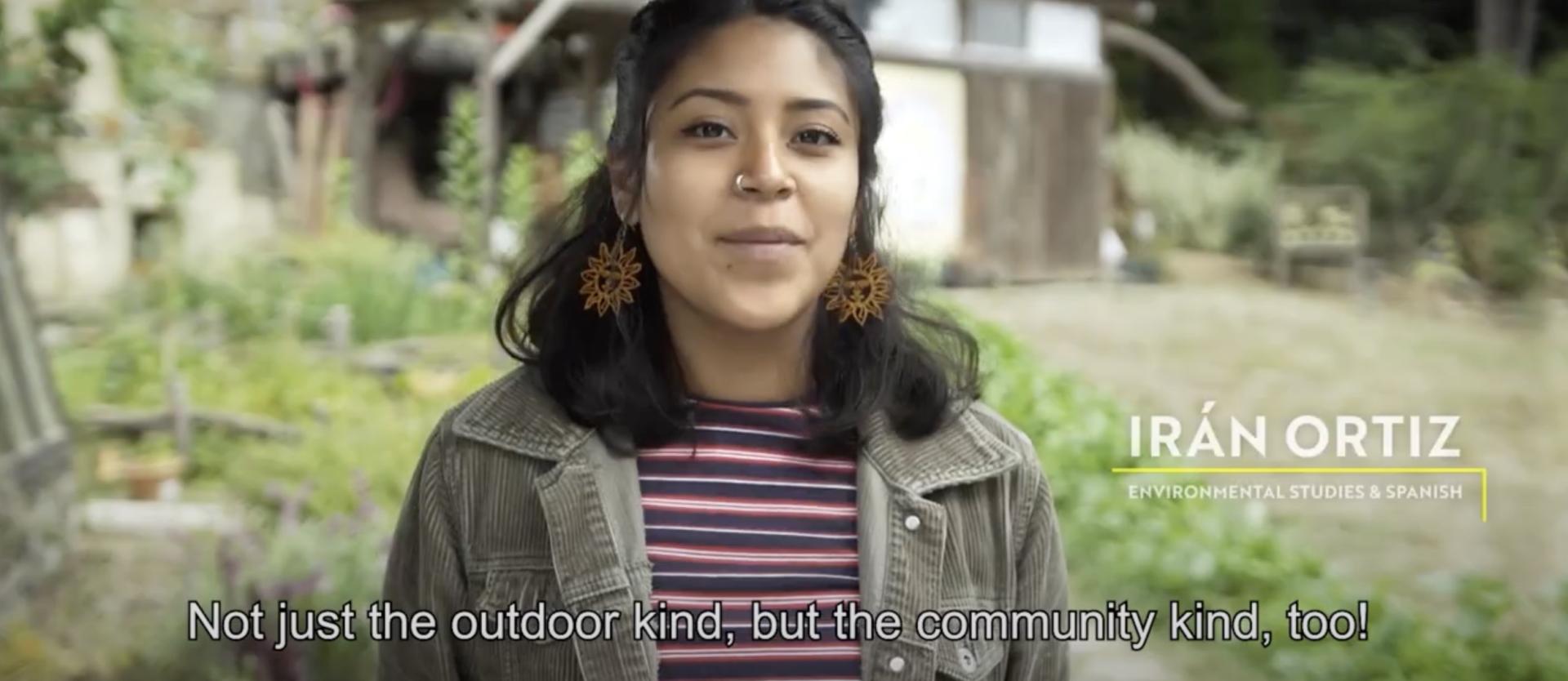Breadcrumb
Sustainability Office Staff
SOME CONTENT BELOW WILL EVENTUALLY BE MERGED WITH THE NEW SUSTAINABILITY HOMEPAGE
About
Learn more about:
- Purpose Statement
- What is Sustainability?
- Sustainability Maps, Guides, & Tours
- The Humboldt Advisory Committee on Sustainability (also known as HACS for short)
- Meet the Staff
Sustainability Dashboard
Check out Humboldt's sustainability data dashboard managed by the Humboldt Advisory Committee on Sustainability to see performance and trends over time. Learn about goals, status, projects, and next steps.
https://hacs.humboldt.edu/academics-and-research
https://hacs.humboldt.edu/energy
https://hacs.humboldt.edu/engagement
https://hacs.humboldt.edu/divestment
https://hacs.humboldt.edu/food
https://hacs.humboldt.edu/transportation
https://hacs.humboldt.edu/transportation
https://hacs.humboldt.edu/transportation
https://hacs.humboldt.edu/waste
https://hacs.humboldt.edu/water
Programs & Initiatives
Click through a variety of currently active programs and initiatives supported by the Sustainability Office at Humboldt including:
Campus Operations
- Waste Diversion
- Utilities: Energy, Water, & Buildings
- Grounds & Landscape
- Sustainable Transportation
- Purchasing
- Sustainable Dining
Green Funds & Investments
- Divestment from fossil fuels & concerning sectors
- Investment in 'green' sectors
- Curated list of sustainability grants (keyword search "Sustainability")
Academics & Research
News & Events
Check out the most recent sustainability news in Humboldt NOW
See the campus sustainability calendar
Read the monthly campus sustainability newsletter (Subscribe)
Follow along on our Recent Happenings Page for informal announcements
Planning & Reporting
Explore a number of plans and reports that Humboldt Sustainability Staff manage on a routine basis, including:
Humboldt Climate Action Planning
Get Involved
Learn about ways you can take immediate action to get involved with sustainability at Humboldt including:
Leadership in Sustainability:
- Grad Pledge
- Humboldt Pledge
- Annual Sustainability Champions Awards
- Green Lunchtime
- Employee Peer Education (coming soon AY 22-23)
- Sustainability Faculty Fellow
Clubs & Student Programs
- Waste Reduction & Resource Awareness Program (WRRAP)
- Green Campus
- Campus Center for Appropriate Technology (CCAT)
- Resident Sustainability Advisor in Housing & Residence Life
- Social Justice, Equity, Inclusion Center
Committees
- Humboldt Energy Independence Fund (HEIF)
- Humboldt Advisory Committee on Sustainability (HACS)
- Sustainable Transportation Committee (STC)
- CCAT Steering Committee
- Associated Students Earth Week Every Week Committee
- University Space & Facilities Committee
- Strategic Planning Working Group: Resources Stewardship & Sustainability
- Native American Studies Food Sovereignty Lab & Cultural Workspace Steering Committee
Internships
- On-campus sustainability internships through the ESM 482 Internship Course
- Check out the Sustainability Practitioners Directory for sustainability internships off-campus.
Community Gardening On- and Off-campus
- There are many community gardens and farms, both on- and off-campus, where students are gaining skills, connecting with others and nature, and growing nutritious and delicious organic food. Check out the Community Gardens Resource Guide to find out about local opportunities, and let's get gardening!
- The North Coast Community Garden Collaborative's goal is to give everyone access to gardens by bolstering existing gardens and adding new ones. The NCCGC also assists community gardeners by giving out plant starts, seeds, soil and more. Find out about local gardens, volunteering and more at the NCCGC website.
Sustainability: Purpose Statement
Updated April 17, 2023
Purpose
The Office of Sustainability seeks to integrate sustainability into the built, natural, and learning environments, and to advance a community that actively pursues environmental and social justice for the common good.
Areas of Service
Waste, energy, water, transportation, landscape, procurement, academics, research, food, environmental justice, engagement, planning & governance, green investing, professional development, among others as requested by partners.
Definition of Sustainability
Sustainability is the recognition that humanity is part of the natural world, not separate from it, and that healthy social and economic systems depend on the resilience of ecological systems.
(Established by the Humboldt Advisory Committ on Sustainability, Spring 2018)
The Office of Sustainability accomplishes their purpose by:
- Mobilizing the campus to meet or exceed CSU-system sustainability goals and policies
- Providing leadership in the development, implementation, reporting and evaluation of sustainability in energy, climate action and resilience planning
- Supporting and leading the integration of sustainability into curriculum, research and service learning to realize the ambitions of the Cal Poly Prospectus and our strategic plan.
- Sustainability Literacy
- Campus as a Living Lab
- Alignment of students and faculty to to experts and practitioners (Directory of Local Sustainability Practitioners)
- Faculty professional development on sustainability
- Applied and experiential learning
- Offering and supporting co-curricular learning experiences for students through internships, employment, service-learning opportunities and events
- ESM 482 internship (2 and 3 unit opportunities)
- Green Campus, HEIF, WRRAP, CCAT, Associated Students
- Assisting departments within Administrative Affairs and throughout all divisions to integrate sustainability into campus infrastructure and operations
- See Sustainability Dashboard for updated tracking in key performance areas
- Fostering a culture of sustainability by engaging the campus community through education, outreach and behavior change campaigns
- Resident peer educator program Eco Reps
- Sustainability Employee Educators Developing Solutions (SEEDS)
- Connecting with community and regional partners
- Provision of student opportunities
- Representation of public officials on Committees
- Consultation with local experts
- Advising campus leadership through the Humboldt Advisory Committee on Sustainability and the Sustainable Transportation Committee
- Engaging with the CSU Chancellor’s Office, sustainability officer affinity groups, and the broader higher education sustainability community to seek synergies and best practice case studies, and to leverage support for system level policy and program development









